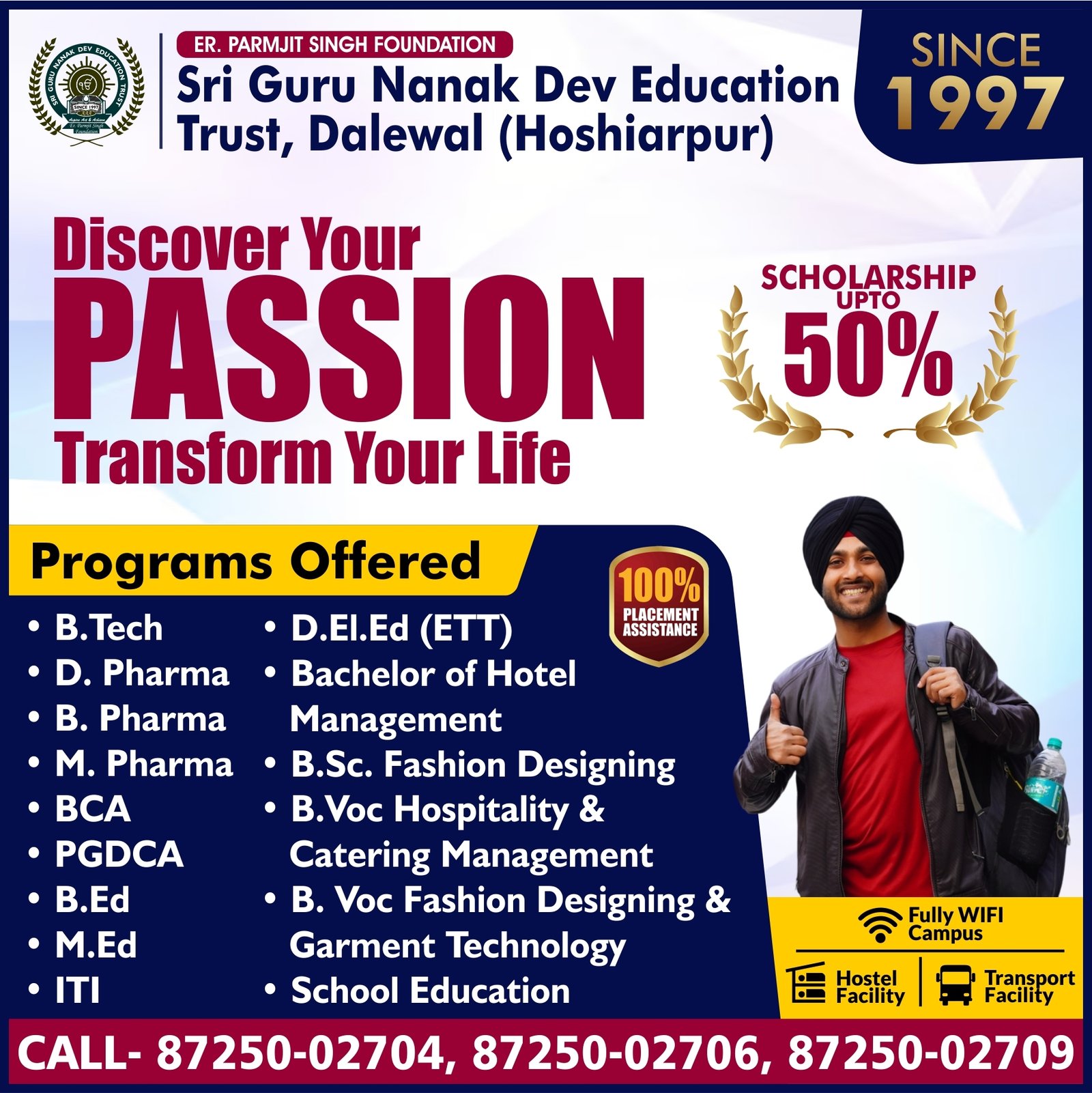



01/07/2025
Information regarding entrance exam
03/04/2025
Baisakhi Festival Celebration
Sri Guru Gobind Singh College of Education, BeghpurKamlooh (Mukerian) was established in 2005 under the aegis of Sri Guru Nanak Dev Education Trust ( Hoshiarpur) with a mission to bring reforms in society through teacher education.. It is situated in Village BeghpurKamlooh at a distance of 6 km. from Mukerian towards Talwara Road. The college is approved by NCTE, Government of India, Punjab Government and affiliated to Punjab University Chandigarh. The college is re-accredited by NAAC with grade “A”. The college has double storey building consisting of well lighted, well ventilated and fully furnished classrooms, administrative office, well equipped labs, well maintained library , Multi- purpose Hall, Auditorium and Canteen etc.


Students
Alumni
Instructors
Placements